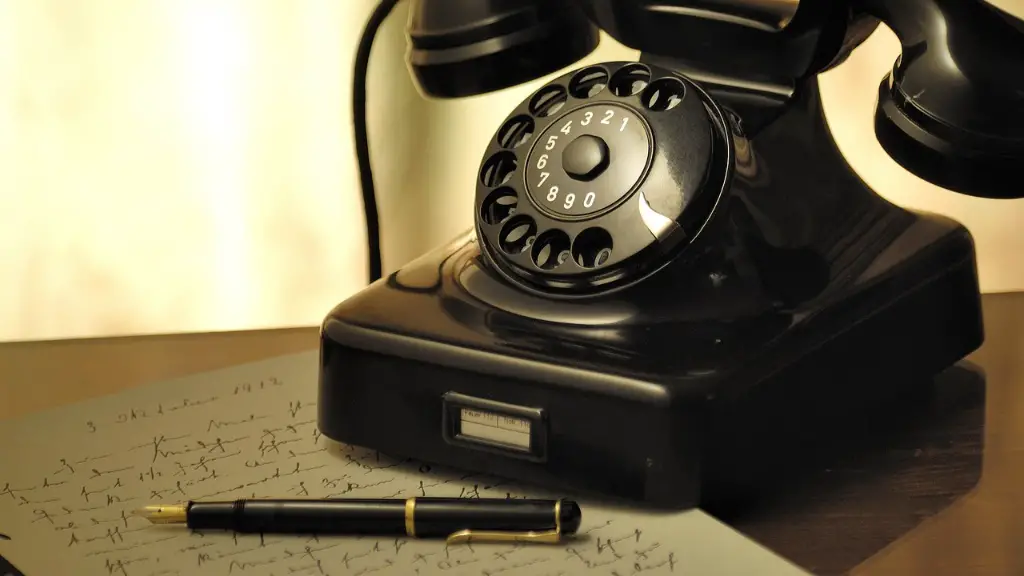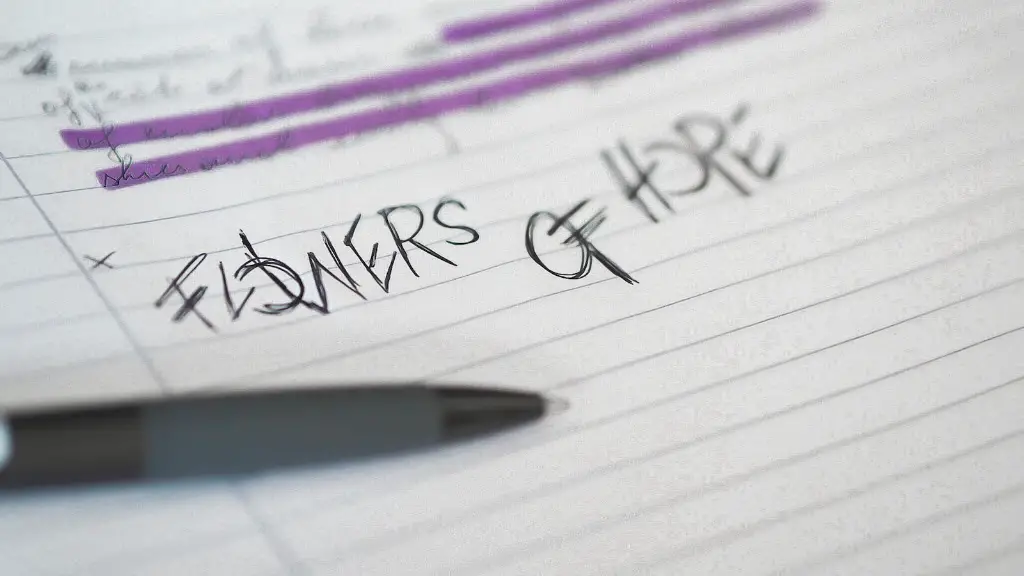I. Punctuation in Poetry
Punctuation in poetry can be tricky and challenging to get right. It is essential to understand how to use punctuation correctly when writing poetry. It is important to remember that the poet’s meaning must be understood so it is essential to use punctuation in a way that communicates the intent of the poem. Understanding how to punctuate poetry is a skill that a poet must practice and hone.
In poetry, punctuation is used in order to convey the message or mood of the poem. For example, a comma can be used to portray a pause that is similar to the way a sentence is structured in speech. A colon can be used to indicate an idea or sentiment that will be explored more deeply. A period may represent a complete thought or the end of a poem.
The use of punctuation in poetry has been debated for centuries. Poets often make an appeal to emotion rather than logic, which is why some poets choose to forgo using punctuation altogether. This can give an effect of chaotic emotion or a sense of uncertainty; both of which can be effective in evoking emotion in the readers. On the other hand, the use of punctuation in poetry can bring clarity, making it easier for the reader to have a complete understanding of the writer’s message.
But, regardless of the opinion a poet may have, punctuation is still essential when writing poetry. Poetry often relies on rhythm and structure, and punctuation can be used to create a particular rhythm, or to provide a pause to make a point. Punctuation can also be used to emphasize certain words or phrases, or to tone down or de-emphasize other words or phrases. It is important to note that punctuation should be used sparingly, as too much punctuation can often be distracting.
II. The Relationship between Punctuation and Poetry Form
The relationship between punctuation and poetry form is an important one. Different poetic forms often require different types of punctuation. For example, in a traditional sonnet, the punctuation should reflect the two quatrains and two couplets of the poem. The punctuation should help to create emphasis on the important words, and also help the reader to follow the rhyme and meter of the poem.
The use of punctuation also depends on the type of poem the poet is writing. For example, an ode is often written in a free form and therefore may require less punctuation. A narrative poem, on the other hand, will often rely heavily on punctuation in order to help the reader follow the story.
In addition, punctuation is also an important element of certain poetic forms, such as haiku, where punctuation can be used to isolate or separate ideas, or to change the rhythm of a poem. Some poets may even choose to omit punctuation in order to create a particular effect, such as a sense of urgency or confusion.
III. Tips for Writing Poetry with Punctuation
The importance of using punctuation correctly when writing poetry cannot be overemphasized. To help make the process of incorporating punctuation into a poem easier, here are some tips:
• Review the poem several times, looking for the words and phrases that are important to the poem’s meaning. These words or phrases should be emphasized through the use of punctuation.
• To give an idea depth, a colon can be used to separate the idea.
• Punctuation should be used sparingly. Too much can be distracting.
• Look for words or phrases that lack clarity. A comma may help to clarify the meaning.
• In a traditional sonnet, each line should have its own punctuation.
• The punctuation should reflect the rhythm of the poem.
• In a narrative poem, punctuation should be used to help the reader follow the story.
• Pay attention to how punctuation changes the meaning of the poem.
IV. The Purpose of Punctuation in Poetry
The purpose of punctuation in poetry is to bring clarity and emphasis to the poem. Punctuation can be used to clarify and emphasize specific words, phrases, and ideas, as well as to add a certain amount of rhythm and structure to a poem. It can also be used to help the reader follow the story in a narrative poem, or to help create a particular mood in a free form poem.
Punctuation should be used sparingly in a poem, as too much punctuation can be distracting. When used correctly, however, punctuation in poetry can be a powerful tool to create emotion and elicit a response from the reader.
V. Common Types of Punctuation in Poetry
In poetry, the most common type of punctuation is the comma. The comma is used to separate ideas, or to create a pause in a poem. The period is also commonly used in poetry to indicate the end of a line or a stanza. In a narrative poem, the period may also be used to indicate a complete thought.
In addition to the comma and the period, other types of punctuation may be used in poetry, such as exclamation marks, question marks, colons, semicolons, parentheses, and hyphens. Each of these punctuation marks has a specific purpose, which should be discussed further.
The exclamation mark can be used to emphasize a particular phrase or line within a poem. The question mark can be used to ask a question or to create suspense. The colon is used to indicate an idea or sentiment that will be explored more deeply in the poem. The semicolon is used to connect two independent clauses, or two phrases that could stand as complete sentences. The parentheses can be used to add information, or to create a pause in the poem. The hyphen is used when joining two words to create an effect.
VI. Punctuation and the Lyrical Quality of a Poem
The use of punctuation can also have an effect on the overall lyrical quality of a poem. Punctuation can be used to create rhythms or patterns in a poem, which can make it more lyrical and melodic. However, it is important to note that this should be done sparingly, as too much punctuation can be distracting and make the poem sound stilted or artificial.
The use of punctuation can also change the meaning of a poem. For example, a comma may connote a sense of uncertainty or hesitation, while a period may connote the end of something, or a feeling of finality. It is important to note how punctuation can both change and enhance the meaning of a poem.
VII. Final Thoughts
Using punctuation appropriately in poetry can be a challenge for even the most experienced poet. It is important to take the time to understand the purpose of punctuation in poetry, as well as how it can change and enhance the meaning of a poem. Different types of poetry require different types of punctuation, and it is important to be aware of this in order to create the most effective poem possible. With some practice and attention to detail, any poet can master the use of punctuation in poetry.

